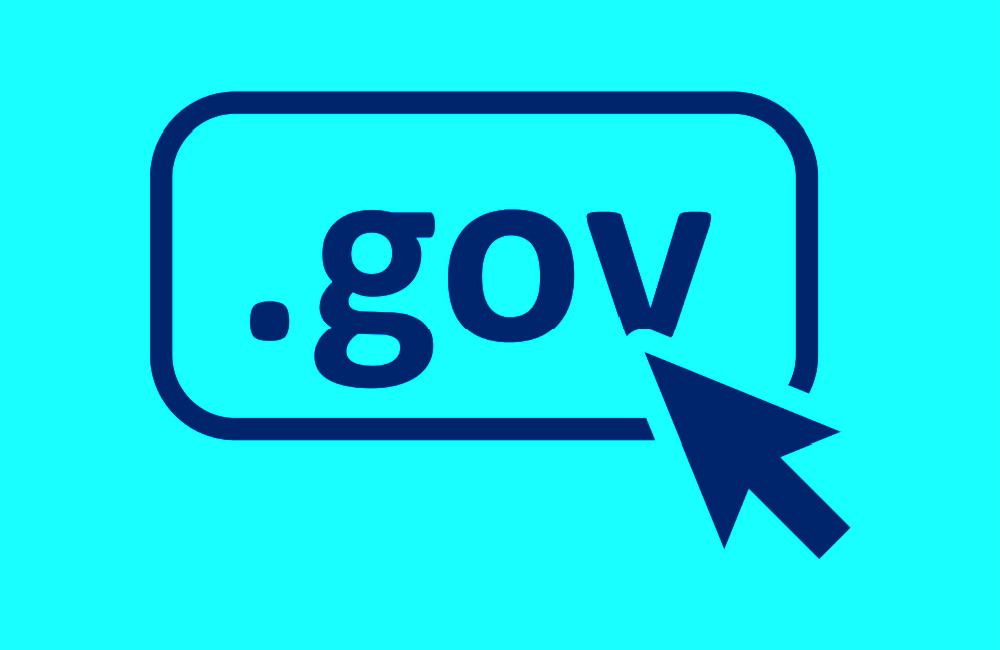If you’ve ever done any research that’s involved visiting an official website run by a country’s government or an affiliated government agency, you’ve probably come across the .gov domain. This extension is used by governments around the world; the US government uses it, for instance, and you’ll usually find that UK government websites carry the .gov.uk extension. It’s a ubiquitous extension, and so you might well be wondering whether .gov backlinks are any good.
The short answer to the question “are .gov backlinks good?” is “yes”. The longer answer, however, takes a little bit of explanation. While .gov backlinks are definitely worthwhile, there can be significant difficulties in obtaining them, and they don’t work in the same way as other backlinks do. Here’s a look at the power of .gov backlinks, whether it’s worth your site chasing them down, and how you can get them.
What exactly are .gov backlinks?
Let’s start at the beginning. When we talk about .gov backlinks, we’re referring to any link from a .gov website that goes directly to one of your website’s pages. A government website might, for instance, cite your research when they’re discussing a particular issue, or you may be in the “recommended reading” section of a particular .gov website’s article.
It’s important to remember that .gov backlinks don’t include government-affiliated agencies without this extension. For instance, in the UK, the National Health Service, commonly referred to as the NHS, doesn’t have a .gov domain, so even though it’s a hugely authoritative domain, this wouldn’t count as a .gov backlink.
Why would you want .gov backlinks?
Because .gov backlinks aren’t from commercial websites, many website owners and digital marketers question the necessity of obtaining .gov backlinks. However, there are a number of potential advantages that come with getting .gov backlinks, so let’s take a look at some of them now.
- Strong domain authority. When you’re getting backlinks, it’s hugely beneficial to get them from sites with a higher domain authority than you have. Often, .gov websites have some of the highest domain authority because they aren’t competitive; they’re simply trusted by a majority of those who visit them, and so their domain authority tends to remain high. This is good news for you if you get a .gov backlink.
- Trustworthiness. Google values trustworthiness immensely; it’s one part of the company’s E-A-T (expertise, authority, trustworthiness) trifecta. Being on a government website immediately increases your trustworthiness hugely, as people will think that if you’re good enough to be featured on an official authority’s website, you must be a trustworthy resource.
- Rarity. Pretty much anyone can purchase a .com domain for the right price, but .gov domains are rarer; they’re only registered by government entities and are impossible to obtain for regular citizens. That’s why, if you’ve got a backlink on a .gov website, you can be assured that it’s definitely coming from where you think it’s coming from, and Google isn’t going to penalise your domain for shady backlinks.
What are the drawbacks of .gov backlinks?
Naturally, .gov backlinks aren’t perfect, or else every single website would be chasing them in an attempt to build a profile. There aren’t a lot of drawbacks to .gov backlinks, but there are a few complicating factors that mean you should be careful if you’re trying to build a strategy around them. Here are some of the problems with obtaining .gov backlinks.
- Very hard to get. You don’t simply obtain a .gov backlink; governments will only link to you if you’re considered a strongly trustworthy source. All links on government websites will be very carefully vetted, so even if your site is fairly high-profile, you still might not quite be well-known enough to secure a .gov backlink.
- Traditional link-building methods won’t work. Often, reciprocal link building is a good way to build up backlinks for your website, but that won’t work for .gov links. You can’t email the site’s webmaster and ask if they want to participate in a link-building program, because .gov websites will dismiss this idea out of hand.
- Not a good cornerstone for a strategy. While you should be trying to get .gov backlinks, they aren’t a good idea as the cornerstone of a strategy, because they’re just too unpredictable and difficult to obtain. You should use .gov backlinks to inform and augment an existing strategy, not as the basis for a new one.
How can you get .gov backlinks?
So, we’ve talked about why .gov backlinks are desirable and why it might be hard to obtain them. You do have options when it comes to getting .gov backlinks, though, even if they can be harder to get than traditional links. Here are some of the strategies you may wish to try.
- Become an authority in your field. There really is no better way to get a .gov backlink than simply to become an authority in a field that’s relevant to government interests and then to hope the government cites your research. Create authoritative, original, and trustworthy content, and the government should notice you.
- Ask governments to replace broken links with yours. This strategy may or may not yield dividends, but you could always try to spot government links that are broken and try to get your content linked in their place. Governments may or may not be responsive to your request, but it doesn’t hurt to try, right?
- Check out your competitors. Do your competitors have .gov backlinks? If so, which pages do they come from? Are there any .gov pages that are relevant to your interests which also currently contain competitor backlinks? Conducting competitive analysis should help you to identify potential .gov backlink areas.


